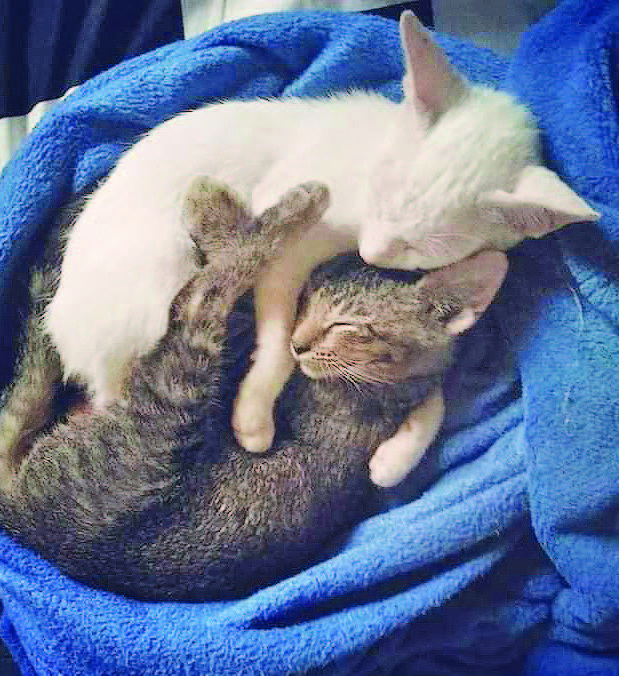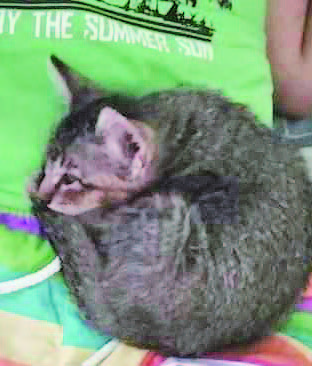Have you ever fostered an animal? Being a foster parent means providing temporary care and shelter to an animal until you find someone who’s willing to give them a forever home. Sometimes, however, things don’t go as planned.

Some foster parents end up falling in love with their foster animal and decide to keep the animal forever. This is called “foster failure”, a popular term among animal lovers meant to be humorous while also managing to make foster parents feel a tad guilty. This makes us wonder: Is adopting your foster animal really considered a failure?
Ice Bear: Icy name with a heartwarming story
Mela Cervantes Abrera, a mental health advocate and a mother of two children and two fur-babies, has already rescued and fostered many kittens. But there was something special about Ice Bear the puspin that made Abrera adopt him.
After finding Ice Bear in the trash, a neighbor gave Abrera the kitten. Abrera said, “When Ice Bear was found, he was too small for his age, obviously malnourished.”

“Ice Bear was a very sickly kitten. During the first month he was with me, he was rushed twice to the vet for emergency care: The first one was when he had severe diarrhea, while the second time was when he had a seizure. He has had three seizures so far,” Abrera shared.
Ice Bear’s delicate condition triggered Abrera’s maternal instincts, especially when she found out that he was also deaf. He might have been a small kitten, but it was obvious that he had a special place in his foster-parent-turned-forever-human’s heart.
Bagel: Softer than any pastry
Bagel, part of a litter of four, found his way to Abrera, thanks to a fellow member of Adopt a Cat Philippines. The kittens’ mother was hit by a vehicle when the kittens were a month old. Abrera fostered all the kittens but she admitted that she was “drawn to Bagel’s color and tabby pattern even though they were common.”

Abrera found responsible human companions for the three kittens, but she and her son had a hard time letting go of Bagel and ended up adopting him. Bagel is now a grown cat but is very much the baby of the family.
Shameful or admirable?
Foster parents usually feel silly when they mention their “failure.” Abrera, on the other hand, was rather proud.
“The term is failure, yes, but I don’t see it as that because I love my cats like my own children. My struggles have been made more bearable by these babies . . . Even during terrible depressive episodes when I couldn’t feed myself, I would get out of bed just so they were fed and their litter boxes were cleaned.”

The point of fostering is to prepare an animal until one finds a good human willing to take care of them. Sometimes, however, one need not look far, what with an animal’s foster home being their future forever home all along.
Finding the perfect parent
When a foster parent decides to adopt the animal they’re fostering, it may be good for both of them. However, not everyone one can afford to keep an animal forever, in which case it is recommended to find an adoptive parent or a shelter with the capacity to care for them.
“Don’t be afraid to rehome. Make sure to interview possible fur parents, ask the right questions, and make sure to ask that they keep you updated and that they don’t get mad when you ask for pictures. If you find the right fur-parents, you’ll know that they will love them as much as you did,” said Abrera.
Rehoming an animal gives the fosterer a chance to open their home to new rescues.
This appeared in Animal Scene magazine’s February 2019 issue.




